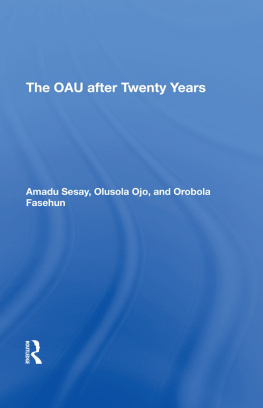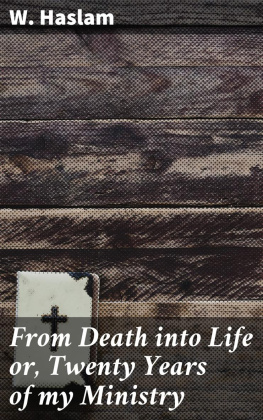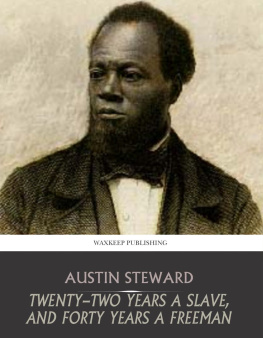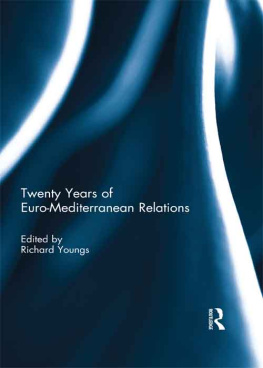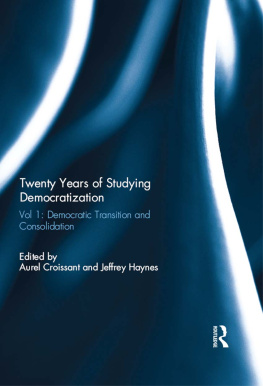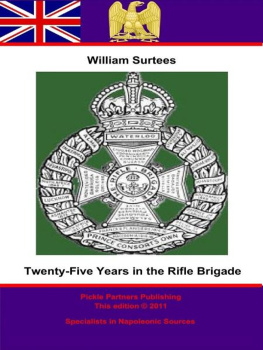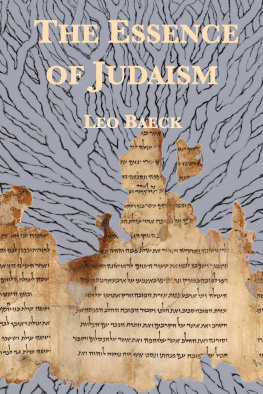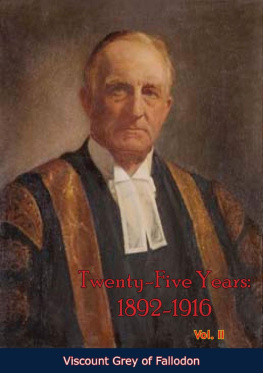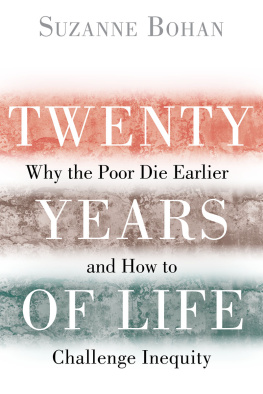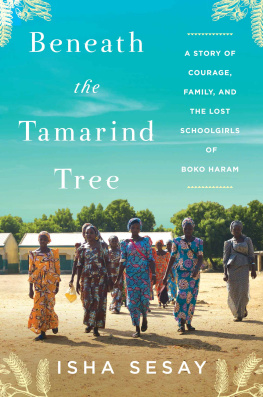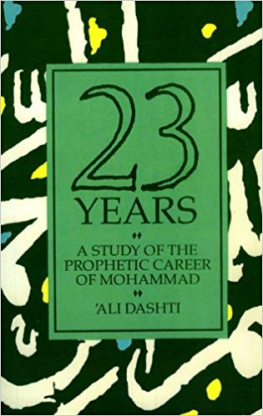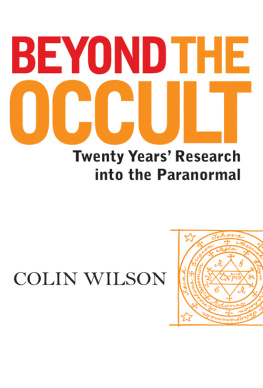The OAU After Twenty Years
Also of Interest
African Security Issues: Sovereignty , Stability, and Solidarity , edited by Bruce E. Arlinghaus
Crisis in Africa: Battleground of East and West , Arthur Gavshon
Military development in Africa: The Political and Economic Bisks of Arms Transfers , Bruce E. Arlinghaus
* State Versus Ethnic Claims: African Policy dilemmas , edited by Donald Rothchild and Victor A. Olorunsola
African International Relations: An Annotated Bibliography , Mark W. DeLancey
Ethnicity in Modern Africa, edited by Brian M. du Toit
Regionalism Reconsidered: The Economic Commission for Africa , Isebill V. Gruhn
African Upheavals Since Independence , Grace Stuart Ibingira
* Africas International Relations: The Diplomacy of dependency and Change , Ali A. Mazrui
* Alternative Futures for Africa , edited by Timothy M. Shaw
Africa and the West , edited by Michael A. Samuels
* Nonstate Actors in International Politics: From Transregional to Substate Organizations , Phillip Taylor
* Available in hardcover and paperback.
Westview Special Studies on Africa
The OAU After Twenty Years
Amadu Sesay, Olusola Ojo, and Orobola Fasehun
This book investigates the performance of the Organization of African Unity (OAU) since its inception, focusing on four areas of central concern to African states: decolonization, conflict control, development, and human rights. The authors examine the OAUs record against the challenge of apartheid and the OAUs lack of resources and effective sanctions. They make a number of suggestions for enhancing the OAUs future viability and its ability to address the continents pressing economic and social needs.
Dr. Amadu Sesay is a lecturer in the Department of International Relations at the University of Ife, Nigeria. He is coeditor (with Ralph cnwuka) of The Future of Regionalism in Africa. Dr.Olusola Ojo is senior lecturer in the Department of International Relations at Ife. He is author of Africa and the Arab World and coeditor (with Timothy Shaw) of Africa and the International Political System. Dr. Orobola Fasehun was a lecturer in the Department of International Relations at Ife and has published many articles on Nigerian foreign policy and on the OAU.
First published 1984 by Westview Press
Published 2019 by Routledge
52 Vanderbilt Avenue, New York, NY 10017
2 Park Square, Milton Park, Abingdon, Oxon OX14 4RN
Routledge is an imprint of the Taylor & Francis Group, an informa business
Copyright 1984 Taylor & Francis
All rights reserved. No part of this book may be reprinted or reproduced or utilised in any form or by any electronic, mechanical, or other means, now known or hereafter invented, including photocopying and recording, or in any information storage or retrieval system, without permission in writing from the publishers.
Notice:
Product or corporate names may be trademarks or registered trademarks, and are used only for identification and explanation without intent to infringe.
Library of Congress Catalog Card Number: 84-52149
ISBN 13: 978-0-367-29451-9 (hbk)
The year 1983 marked the end of the second decade of the Organisation of African Unity (OAU). This volume is an assessment of the performance of the Organisation since its creation in 1963 and of its potential, focusing on Africas central concerns: decolonisation, African conflicts, economic development, and human rights.
Three main factors inform the study. First, the OAU is Africas largest and most prestigious regional organisation and, as such, offers a broad view of the various foreign policies of African states. The difficulties as well as the latent potential of the Organisation have attracted the attention of both African and non-African scholars. This leads to the second reason, which is that the OAU, being a regional organisation, offers a laboratory for the testing of neo-functionalist claims that regional organisations are more effective in dealing with regional problems than are global international organisations. Third, the study is an addition to the literature on Africas international relations in particular and regional organisations in general.
In the course of preparing the book, we received assistance from many individuals and institutions. We are particularly grateful to the University of Ife for a research grant that enabled us to visit Abidjan, Addis Ababa, and Dar-es-Salaam. We are also grateful to those individuals in the African Development Bank, the OAU Secretariat, the OAU Liberation Committee Headquarters, and the Economic Commission for Africa who provided us with invaluable information and documents but who preferred to remain anonymous for obvious reasons. Last but by no means the least, we wish to express our gratitude to all our families for lovingly coping with our erratic working schedules in the course of the books preparation.
Amadu Sesay
Olusola Ojo
Oroboia Fasehun
Ife, Nigeria
1
Introduction
The roots of the Organisation of African Unity (OAU), which was set up in 1963 at a summit meeting of thirty-two African Heads of States and Governments, can be traced back to a major discourse that started in the penultimate days of colonialism on the continent. The debate focused on both the nature and character of future relationships among the independent African states and was expressed within the Pan-African Movement.
There were two broad and conflicting schools of thought. The first within this groupingthe radical schooladvocated immediate political union among the independent states. The secondthe moderates cum-conservativeswas opposed to political union and called instead for close cooperation in other (i.e., economic, social, cultural, and educational) fields. These conflicting positions on the nature and form that African unity was to take led to the formation of various ideological groupings between 1960 and 1963, reflecting the radical-moderate split within the Pan-African Movement. The most important blocsinstitutional expressions of these divisionswere the Brazzaville, the Monrovia, and the Casablanca. Besides these ideological divisions on the broad issues of unity among the independent states, there were other specific issues like the Congo crisis, the Algerian war of independence, and the status of Mauritania, which sharpened the prevailing differences among the independent African states.
Despite these differences, diplomatic moves were made during this period by the uncommitted or neutral African states, most notably Ethiopia, to bring about a reconciliation of the different ideological blocs within the Pan-African Movement. Their main objective was to call a conference of all independent states with a view to creating a Pan-African organisation that would accommodate and moderate the disparate positions on African unity.
A number of propitious factors helped to make this conciliatory diplomatic initiative by the neutrals a success. First, with the formal independence of Algeria in 1962, the question of whether Algerian nationalists should be seated at pan-continental meetings (a very divisive issue in the past) was effectively resolved. Second, there was a lull in the tensions and conflict in the Congo following the assassination of Patrice Lumumba in 1961. Although some African states remained hostile to the new authorities in that country, by the end of 1962 such opposition was not as strong as it had been while Lumumba was alive. And third, it was becoming apparent that the factional politics that had plagued Pan-Africanism since the late 1950s could not be allowed to continue to debilitate the Movement much further. Many African leaders had come to think that it was in Africas interest to meet and resolve outstanding differences once and for all. Thus, the way was paved for the May 1963 African heads of state summit in Addis Ababa, Ethiopia.

